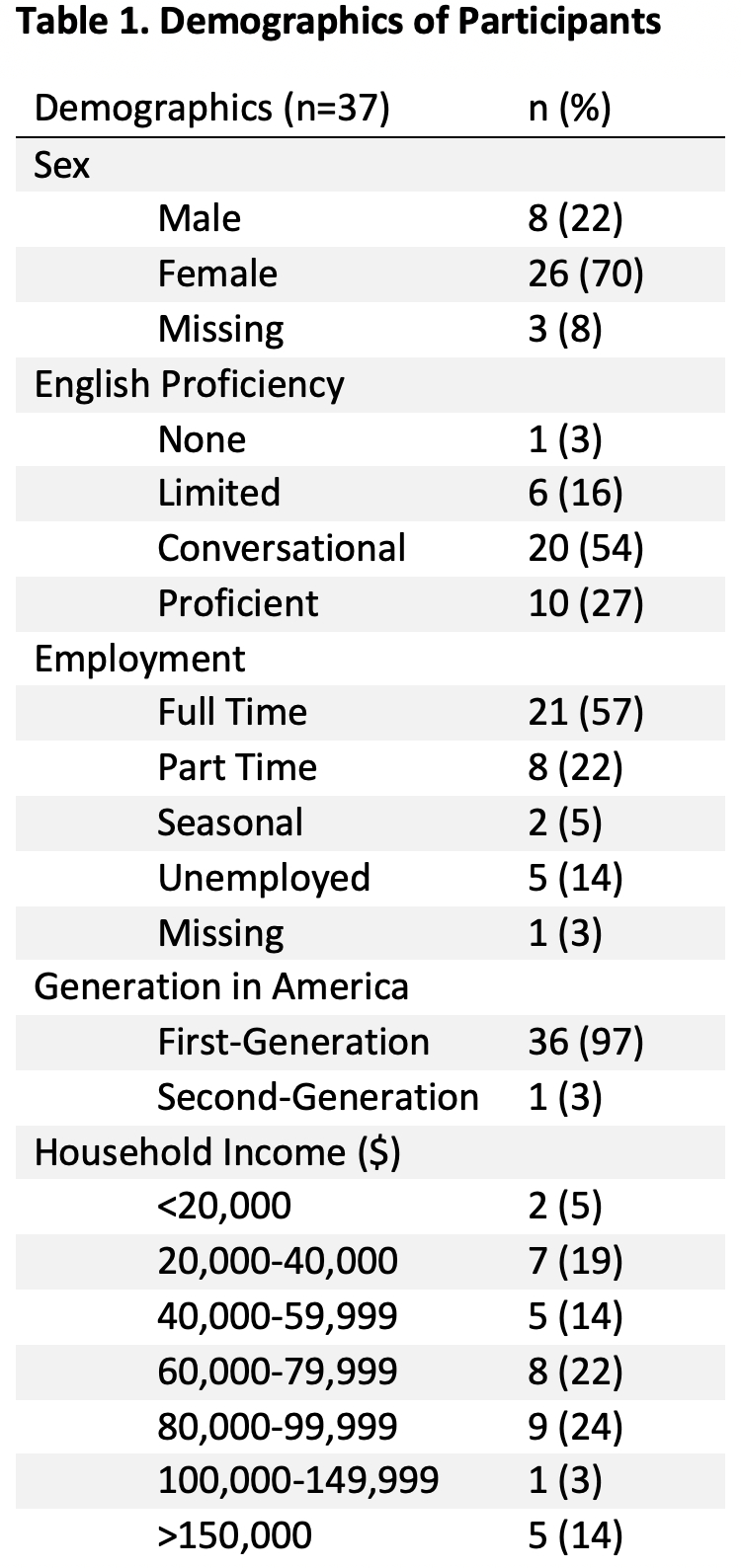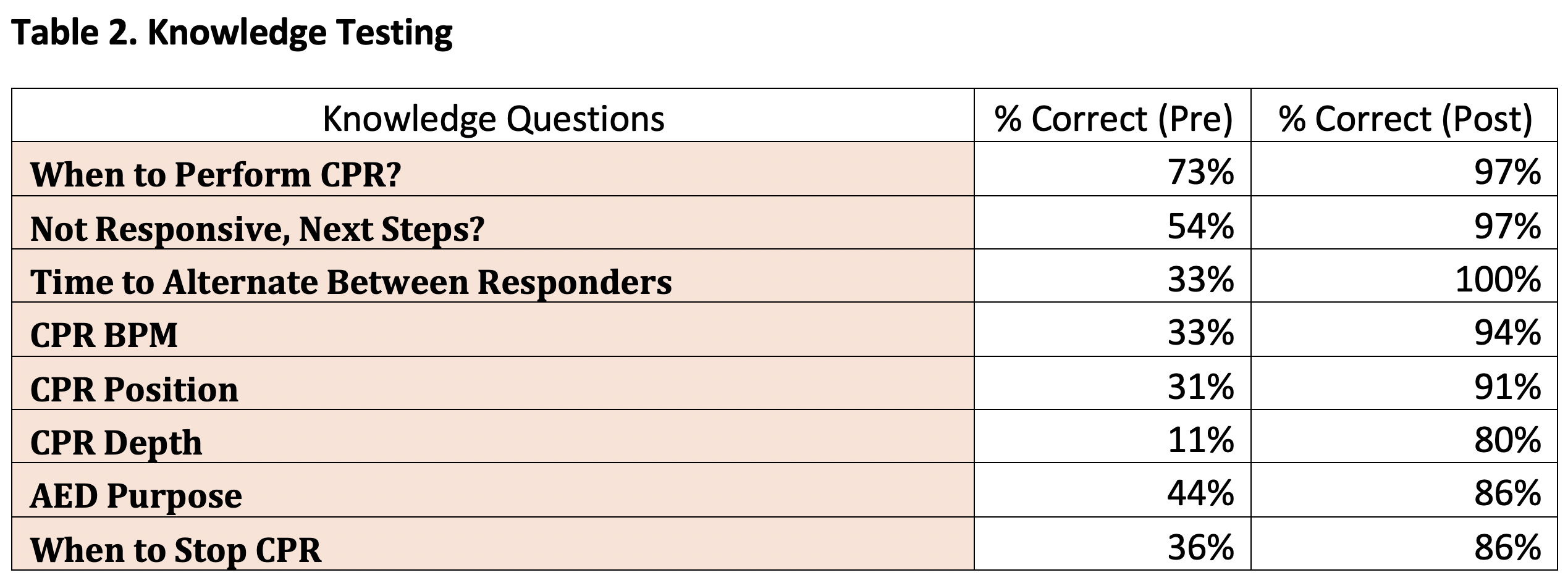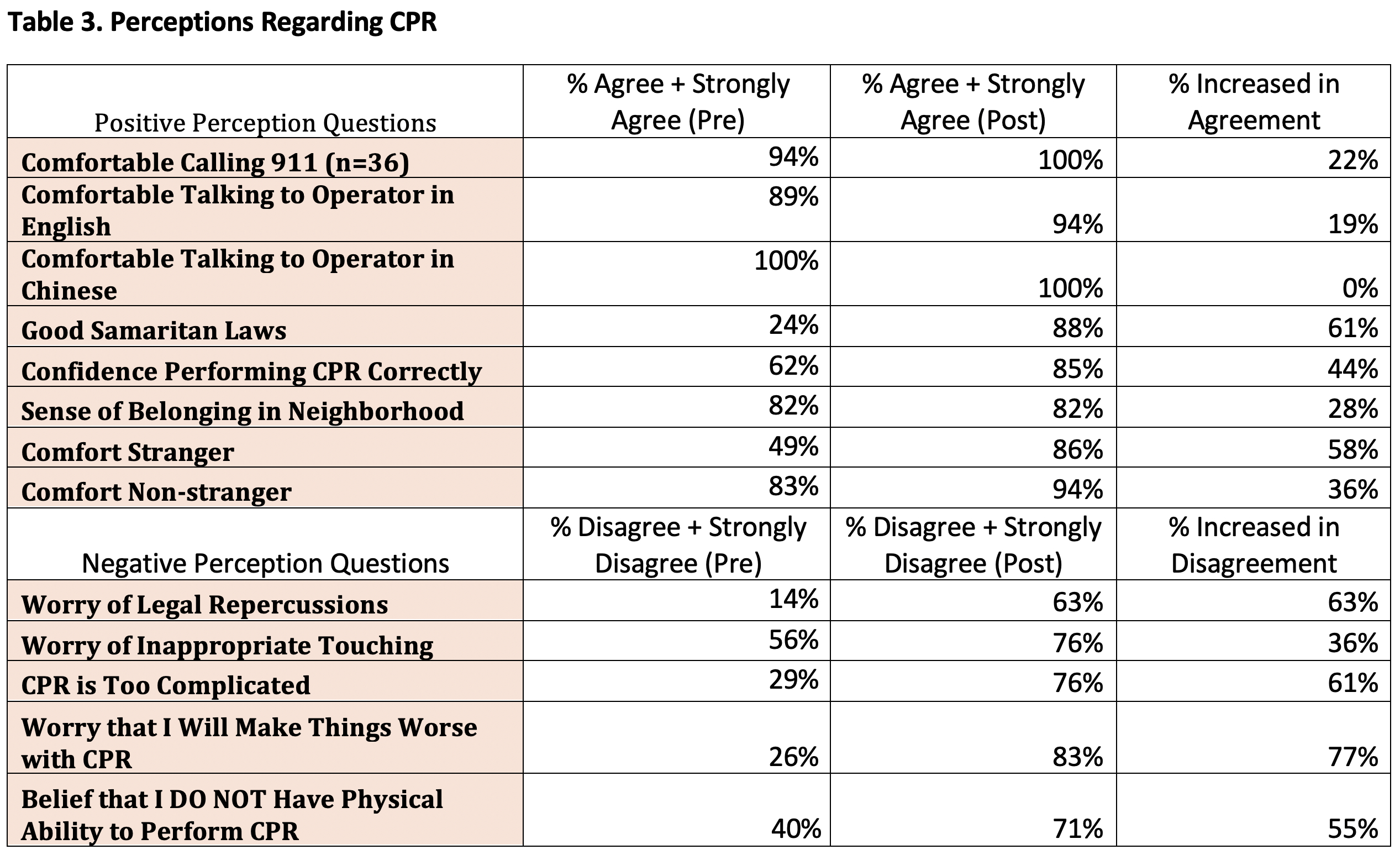Final ID: Sa705
Knowledge and Perceptions of Hands-Only Cardiopulmonary Resuscitations in Chinese Americans Who Speak Mandarin as a First Language
Abstract Body: Introduction: Bystander Cardiopulmonary Resuscitation (CPR) is crucial to the survival of out of hospital cardiac arrest (OHCA) patients, but only 40.2% received bystander CPR in 2023. Asian Americans are less likely to receive bystander CPR in witnessed OHCA versus Non-Hispanic Whites. Existing literature identifies language comprehension as one barrier. For Mandarin speaking populations, there has been a demonstrated need for CPR education but a paucity of research regarding the effect of Mandarin language CPR classes. Our project hopes to fill this need and research gap.
Hypothesis: Teaching CPR in Mandarin will improve CPR knowledge and perception in Mandarin speakers, including willingness to perform CPR.
Methods: This pre- and post-test cohort study included 40 parents of students at a Chinese language school. First, pre-surveys were administered, collecting demographics, perceptions, and knowledge. There was a presentation of Hands-Only CPR and Automated External Defibrillator (AED) by native Mandarin speakers, a video and live demonstration on a CPR manikin, and then small group practice. Participants filled out a post-survey and were tested on CPR/AED usage by trained CPR instructors. This pilot analysis provides describe data of our results.
Results: Of the 40 participants who completed the course, 37 completed both pre- and post-surveys. Of these, 26 (70%) were female, none were native English speakers, 32 (86%) have never learned CPR. Additional demographics are provided in Table 1. There was an improvement in knowledge related to CPR after the hands-only CPR course. Most were willing to perform CPR on those they knew (94%) and strangers (86%) post- course. There was an increase in agreement (from disagree to neutral) for all positive perception questions except for comfort speaking in Chinese with 911 operators. There was also a decrease in agreement for all negative perception questions. Further data is provided in Table 2 and 3. In the final proctored assessment, 36/37 participants passed (one did not participate).
Conclusion: This novel, proof-of-concept study shows that our Mandarin-language CPR class positively improved knowledge and perceptions related to CPR in both written and performance assessments. Our findings align with existing literature and addresses a critical gap in improving bystander CPR rates. We plan to conduct additional classes with Mandarin-speaking community members and expand this class to other Asian subgroups.
Hypothesis: Teaching CPR in Mandarin will improve CPR knowledge and perception in Mandarin speakers, including willingness to perform CPR.
Methods: This pre- and post-test cohort study included 40 parents of students at a Chinese language school. First, pre-surveys were administered, collecting demographics, perceptions, and knowledge. There was a presentation of Hands-Only CPR and Automated External Defibrillator (AED) by native Mandarin speakers, a video and live demonstration on a CPR manikin, and then small group practice. Participants filled out a post-survey and were tested on CPR/AED usage by trained CPR instructors. This pilot analysis provides describe data of our results.
Results: Of the 40 participants who completed the course, 37 completed both pre- and post-surveys. Of these, 26 (70%) were female, none were native English speakers, 32 (86%) have never learned CPR. Additional demographics are provided in Table 1. There was an improvement in knowledge related to CPR after the hands-only CPR course. Most were willing to perform CPR on those they knew (94%) and strangers (86%) post- course. There was an increase in agreement (from disagree to neutral) for all positive perception questions except for comfort speaking in Chinese with 911 operators. There was also a decrease in agreement for all negative perception questions. Further data is provided in Table 2 and 3. In the final proctored assessment, 36/37 participants passed (one did not participate).
Conclusion: This novel, proof-of-concept study shows that our Mandarin-language CPR class positively improved knowledge and perceptions related to CPR in both written and performance assessments. Our findings align with existing literature and addresses a critical gap in improving bystander CPR rates. We plan to conduct additional classes with Mandarin-speaking community members and expand this class to other Asian subgroups.
More abstracts on this topic:
Association Between Perceived Discrimination and Depression/Anxiety Symptoms
Tang Zhengxin, Lv Nan, Ma Jun
A Community Outreach Program Focused on Hypertension Awareness Reaches 600+ People in Rural Georgia and Works to Build the Next Generation of Biomedical ScientistsDent Elena, Ilatovskaya Daria, Pinkerton Brittany, Crider Emily, Ryan Michael, Sullivan Jennifer



